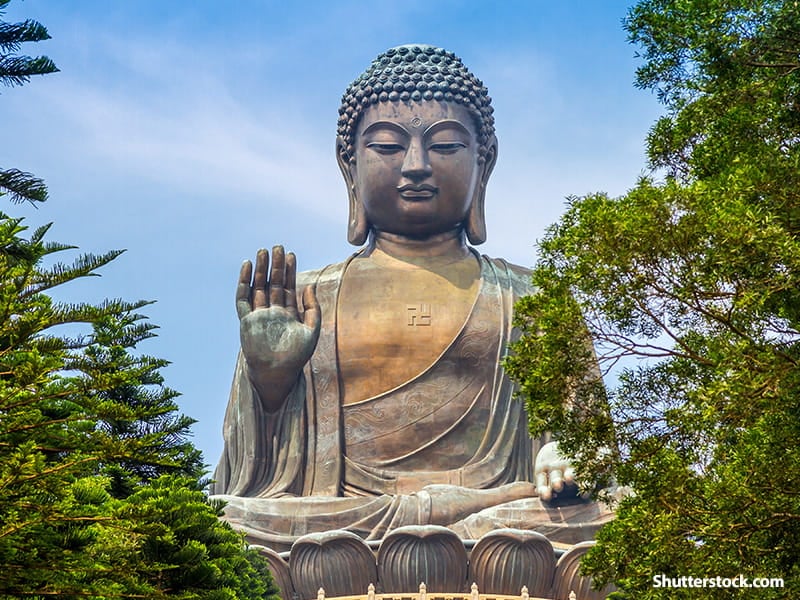Asian officials, Buddist groups and archeologists have been in an uproar over the fundamentalist Islamic militia's decision to demolish statues, including two towering 5th-century images of Buddha carved into a cliff face.
One of the images is the world's tallest standing Buddha, measuring 175 feet. The second measures 120 feet high. The Buddhas are at Bamiyan, about 90 miles west of the Afghan capital of Kabul.
The head of UNESCO fiercely criticized the decision, saying such a move would be ``a real cultural disaster.''
Koichiro Matsuura, the director-general of the Paris-based organization, said in a statement that he strongly urged the Afghan people to take action to prevent the statues' destruction.
``Carrying out this decision would be a real cultural disaster that will cause irreparable harm to a heritage of exceptional universal value. This heritage is central to Afghanistan's memory and identity and is a landmark in the history of other civilizations,'' Matsuura said.
Matsuura said the loss of the statues and of the Buddhas of Bamiyan, which were carved out of a mountainside in the fifth century, would be a loss for humanity.
``The perpetrators of such an irreparable act would bear a heavy responsibility before the Afghan people and history,'' Matsuura said.
The head of the U.N. Educational, Scientific and Cultural Organization sent a telegram to the Taliban's supreme leader, asking him to reconsider the decision, the statement said.
``The implication of such a decision would imperil the very rich artistic heritage of pre-Islamic Afghanistan, of which some pieces, notably the giant Buddhas of Bamiyan, are among humanity's world heritage,'' the ministry said in a statement.
``We call on the Taliban leaders to abandon this decision,'' the statement added.
In ordering the statutes destroyed, the Taliban's supreme leader, Mullah Mohammed Omar, said Monday that they were contrary to the tenets of Islam, which the Taliban say forbids images, such as paintings and statues.
But while many Asian Buddhists criticized the decision, most refrained from criticizing the Islamic rulers, saying that would be against Buddha's teachings.
Thailand, Cambodia, Myanmar and Laos, four predominantly Buddhist nations in Southeast Asia, have not officially criticized Kabul. In South Korea and Japan, the main Buddhist associations described the Afghan decision as anti-cultural and an affront to humanity.
Neighboring Iran, also ruled by Islamic clergy but opposed to the Taliban regime, scolded Kabul's move, saying it will likely damage Afghanistan's relations with other governments, Iran's IRNA news agency said. It ridiculed Afghanistan's Taliban rulers, saying the people who ordered the statues' destruction ``strangely call themselves clerics.''
A top monk in Thailand cited the Buddhist philosophy of turning the other cheek.
The Ministry of Vice and Virtue enforces edicts issued by Omar. They make sure men pray in the mosque, women cover from head to toe in the all encompassing burqa and that bans on most forms of light entertainment, photography and television are enforced.
The Taliban's foreign Minister, Wakil Ahmed Muttawakil, told The Associated Press that the Taliban, who rule 95 percent of Afghanistan, are unmoved by international pleas to save the Buddhas.
``We have diplomatic relations with only three Islamic countries and this has not effected our relations with them. Other countries should understand that this is an internal issue and these statues belong to Afghanistan,'' he said.
In Pakistan, archaeologist and founder of the Society to Preserve Afghan Cultural Heritage, Professor Ahmed Hasan Dani, said the decision to destroy the Buddhas was a travesty.
``These are not there to be worshipped. They are works of art. They belong to all of humanity,'' he said.
Omar, in his edict ordering their destruction, said that he wanted to ensure the statues were not worshipped in the future.
Indian pilgrims traveling the ancient trade route known as the Silk Road introduced Buddhism to what is now Afghanistan, but the ninth and tenth centuries A.D., Islam was firmly entrenched though trade and conquest as the area's dominant faith tradition. Buddhism then gradually diminished.
Today, there are no Buddhists living in Afghanistan. However, there are small numbers of Hindus and Sikhs and Muttawakil promised their temples would be protected. Hindu temples are filled with statues of dieties.
Afghanistan once had a sizeable Jewish population as well. Today, the community consists of one elderly Jewish rabbi, who stays in Kabul to protect a synagogue located in a small house in the center of the city.
The Taliban have not prevented him from practicing his religion, according to reports.

